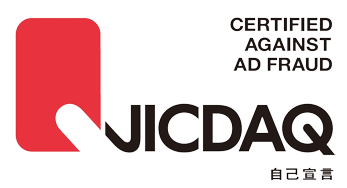How Will iOS 14’s Tracking Protection Feature Impact Ad Distribution?
Apple released iOS 14 this fall, and it was announced that it will add an ad tracking protection feature to enhance user privacy and security. However, this announcement has become controversial from the advertisers point of view. In this article, we will explain the problem of iOS 14’s ad tracking protection feature, which is about to have a great impact on online advertising.
Apple’s Ad Tracking Protection Feature in iOS14

Apple’s announcement in adding iOS 14’s ad tracking protection features has caused a great deal of controversy, but what is the problem with adding this new feature in iOS14? Here’s an explanation of Apple’s purpose for adding the new feature and the impact it will have with advertising companies.
What is the Purpose of Adding the Tracking Protection Feature?
Apple announced the addition of the anti-tracking feature on iOS14. The tracking feature by default is turned on, but users have the option to change the tracking option by toggling “Tracking” feature off under the settings of their phone. By doing so, their Identifier for Advertisers (IDFA) data will no longer be retrieved and protecting the user’s privacy better.
“Privacy is a fundamental human right” is a belief that Apple takes into great consideration, and they are looking to strengthen privacy protections by adding the anti-tracking feature to help Apple users feel comfortable using their iPhones.
Impact of the New Features on the Online Advertising Industry
If IDFAs can no longer be used, the amount of data obtained by tracking user information will be greatly reduced making it difficult to deliver ads effectively. Up to this point, ads have relied heavily on tracked user information to push out targeted ads, but the implementation of iOS 14’s new feature will greatly affect this.
Ad agencies that have been providing proposals and operations of targeted ads are expected to be heavily impacted by this change. As a result, Apple’s announcement of this new feature has prompted a flurry of inquiries from companies such as the advertising business organization Interactive Advertising Bureau (IAB) and Facebook.
How Will this Feature Affect Advertisers?
With the addition of Apple’s ad tracking protection feature, Identifier for Advertisers (IDFA) will no longer be available, which will have a huge impact on ad delivery and management measurement. Digging deeper, here are the actual impacts the feature has on advertisers in the future:
- Since it will no longer be possible to obtain a device’s IDFA to which the ad is being served, the relevancy of targeted ads will decrease, resulting in fewer impressions and fewer conversions.
- IDFA is used to measure conversions in iOS apps, and without it can potentially lead to flaws in conversion measurement.
Because of the above impacts, Google, Facebook, and other ad-serving companies have been busy on how to respond to the changes.
Apple Postpones Ad Tracking Protection Feature

iOS14 has been released, but Apple made an announcement postponing the ad tracking feature to early 2021. So why did Apple decide to postpone it?
To Give Advertising Companies and Developers Time
Apple announced that the addition of the anti-tracking feature will be postponed due to a flood of inquiries from Facebook and other ad-serving companies, forcing them to postpone the addition of this new feature in anticipation of a major impact on ad-serving companies.
The announcement of this new feature was announced on June 22, 2020, giving advertisers and developers only 3 months before its planned release. Apple have decided to postpone the release of the new feature as a grace period for advertisers and developers who can’t respond to the sudden announcement.
Summary
Apple has announced the addition of its ad tracking protection features in iOS 14. However, Apple’s dedication to enhancing security and protecting privacy is an attitude that should not be overlooked in today’s digitally transformed society.
As advertising companies claim, the biggest appeal of online advertising is the ability to effectively deliver ads by optimizing the targeting and verifying campaign results through a Plan-Do-Check-Act (PDCA) Cycle, which is harder to achieve with offline advertising. With the proliferation of smartphones, the market for online advertising is growing.
If Apple controls the use of IDFA, it will have a significant impact on measuring and delivering effective ads. Although not much information has been provided yet, Google will handle ad serving through Google Mobile Ads SDK and measure ad operations with SKAdNetwork.
Apple announced the addition of the ad tracking feature enhancing user security and privacy despite the significant impacts on advertising companies, and we can also understand the power of digital advertising alongside the importance of security.



















